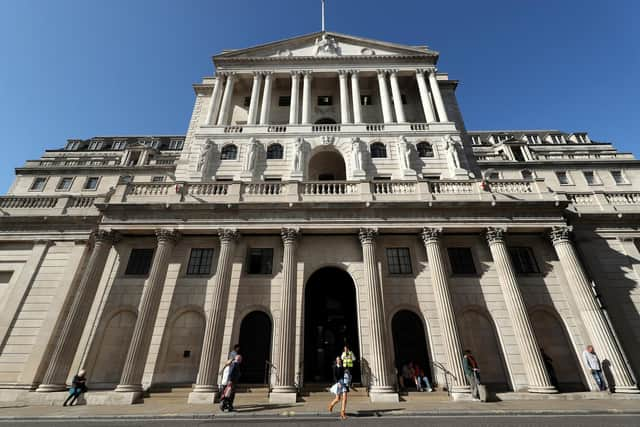The cost of fiat currency is hitting taxpayers in the pocket - Yorkshire Post Letters
Interest rates are on the rise, for complicated reasons trotted out by economists, who ignore the obvious which is that those who supply our money are putting their prices up to recoup a long period of getting next to nothing for it.
It is forecast that the cost of borrowing might treble. Considering that the UK already pays about £2 bn a week in interest, that is a frightening prospect.
Advertisement
Hide AdAdvertisement
Hide AdBut to whom is this interest being paid we ask. It is not to those who have been deprived of the use of real money while it is being lent, it is to banking corporations who have simply created money from thin air at the behest of the government itself.


A crazier situation would be harder to imagine. The private banking system creates the public money supply for the government and charges the government interest.
And that magic money is just unredeemable pieces of paper with no intrinsic value, only useful as a means of exchange. It is so-called 'fiat' money.....from the Latin 'let it be done'... money made legal tender by government decree, and backed only by faith in that government; as opposed to real money, backed by an asset such as gold, and redeemable for such, and therefore a store of value for its owner.
The huge advantage of fiat money however, is that for as long as faith in its issuer continues, it can go on being created. But the disadvantage lies with the banks, who demand interest on that money they have created for the government.
Advertisement
Hide AdAdvertisement
Hide AdTherefore if the issuer of fiat money was the government itself, it could be created and issued interest free and in any amount needed to finance health, defence, or whatever, and to heck with the banks.
Just think what £2bn a week could do for people here in Britain. For one thing, the government would not have to raise tax to pay it every week.
So, let's see that's £2bn a week, saved for 67 million people, which is £29.85 a week, or £1,552 a year for every man woman and child.
I say, let's go for that.
